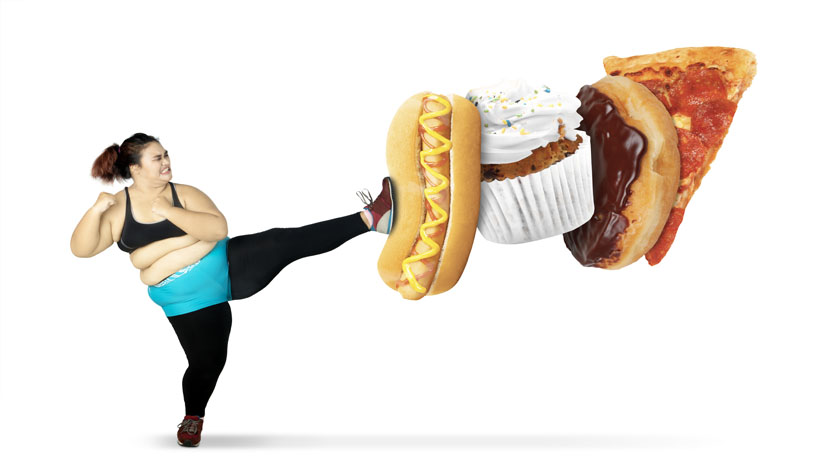Here’s an article that I wrote for the Huffington Post. It is relevant today, so I decided to share some of my thoughts about how difficult it is not only to change unhealthy eating patterns and lose weight, but how it is equally, if not harder, to keep weight off.
I know about this from firsthand experience — I’ve been maintaining a 50-pound weight-loss for over several decades. It’s been tough but not impossible. Here’s my story.
For more than a third of my life, I overate and my weight fluctuated dramatically. Overeating numbed my feelings and kept me from experiencing life to the fullest. And that’s the way it was as a child, during my teens and for a good part of my young adult life.
When I was in my early 20s, my best friend was killed in a car accident. I was at a very low point, and was gaining weight that was harder than ever to shed. I tried a series of fad diets without any limits. Then I decided to visit a diet doctor, paying $40 a week for a “magic potion,” that I took before bed and was meant to reduce my appetite. Instead of diminishing my appetite, the drops made me an insomniac.
During a vacation in Puerto Rico — I caught a glimpse of my reflection in a glass door and realized that my thighs were enormous. That was a turning point for me. I knew I had a problem. When I got home, I joined a support group. I was ready to listen to other people who seemed to have had some success with their food problem. I learned that I wasn’t a “weak-willed glutton,” but a person who needed help. I couldn’t keep the weight off by myself.
With the help of others, I learned how to eat sensibly, explored reasons behind my overeating, and began to understand my obsession with food. I had swallowed my fear, anger and sadness along with all those brownies. Members of the group listened and I began to identify with them. Although my fellow overeaters were from all walks of life, we shared a common bond, and we helped each other as we helped ourselves.
If you’ve endured the pain of overeating and you’re ready to find a different way of coping, try to find new ways of rewarding yourself, ways that DON’T involve food.
Here are some thoughts for overeaters trying to gain back their lives and their self-esteem:
Reach out for support
There are many different types of groups that are available. Although you may feel shame for not being able to do it on your own, don’t do it alone.
Do something especially nice for yourself each day
Stroke yourself more. Splurge. Take time with a friend; buy yourself something special — it doesn’t have to be expensive.
Make a list at the end of the day of the things you’ve done right!
I’m sure you know what you’ve done wrong, but did you acknowledge yourself for what you did right?
Dress your best whatever weight you’re at
Take pride in yourself. Try to keep a positive outlook. Act as if the weight will fall off, and it will!
Start simplifying your life
Clean out your fridge of unhealthy foods. Simplify your day by avoiding excessive busyness. Remember: what you truly hunger for is love and connection with other people — not food.
Become aware of the “I will never be able to (fill in the blank)”
Don’t allow yourself to go there. I never thought I could be where I am now!
I’ve learned a way of eating that is right for me. My “food plan,” which I developed with someone who had been maintaining her weight loss for a while, gives me a sense of freedom rather than restriction. I wish I could say it’s a perfect formula for everyone, but food triggers are personal. I know the foods that stimulate binges for me (ice cream, candy and cake) and, although I love them, I haven’t eaten them in years because I love life more.
Today, I can go anywhere and do anything because of the boundaries I have set for myself. Although the names and faces of people who helped me have changed through the years, the guideline of “staying away from the first bite of something that will trigger me,” has not. I actively help other overeaters not hurt themselves by sharing my story with them.
by Helene Lerner



